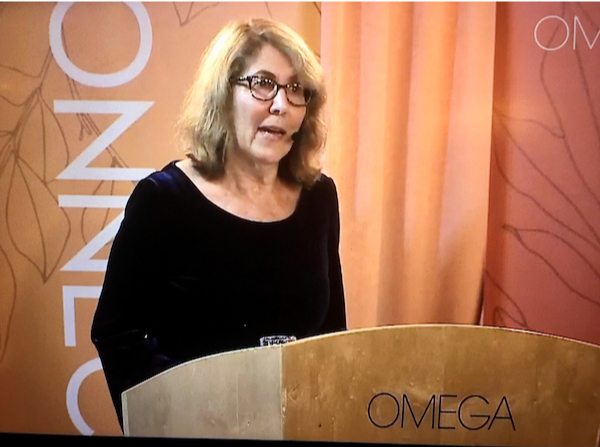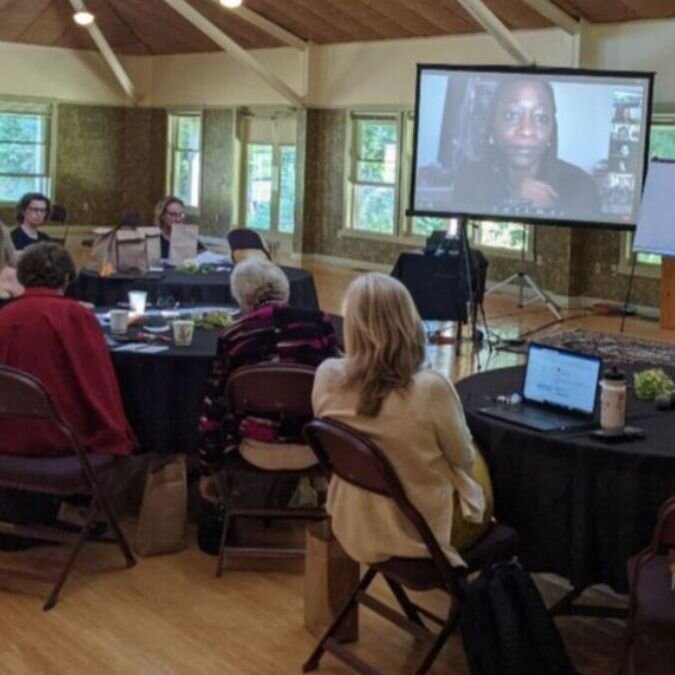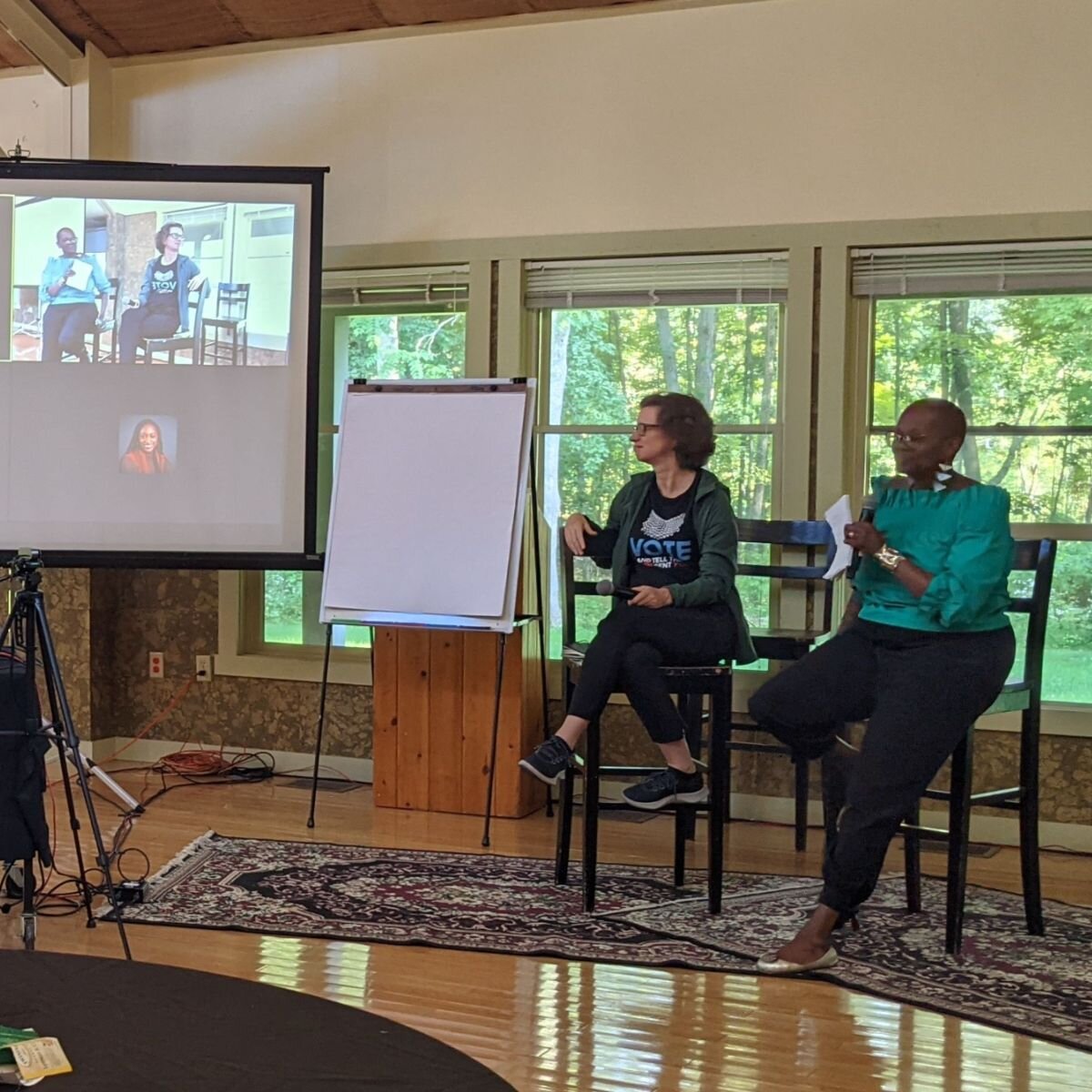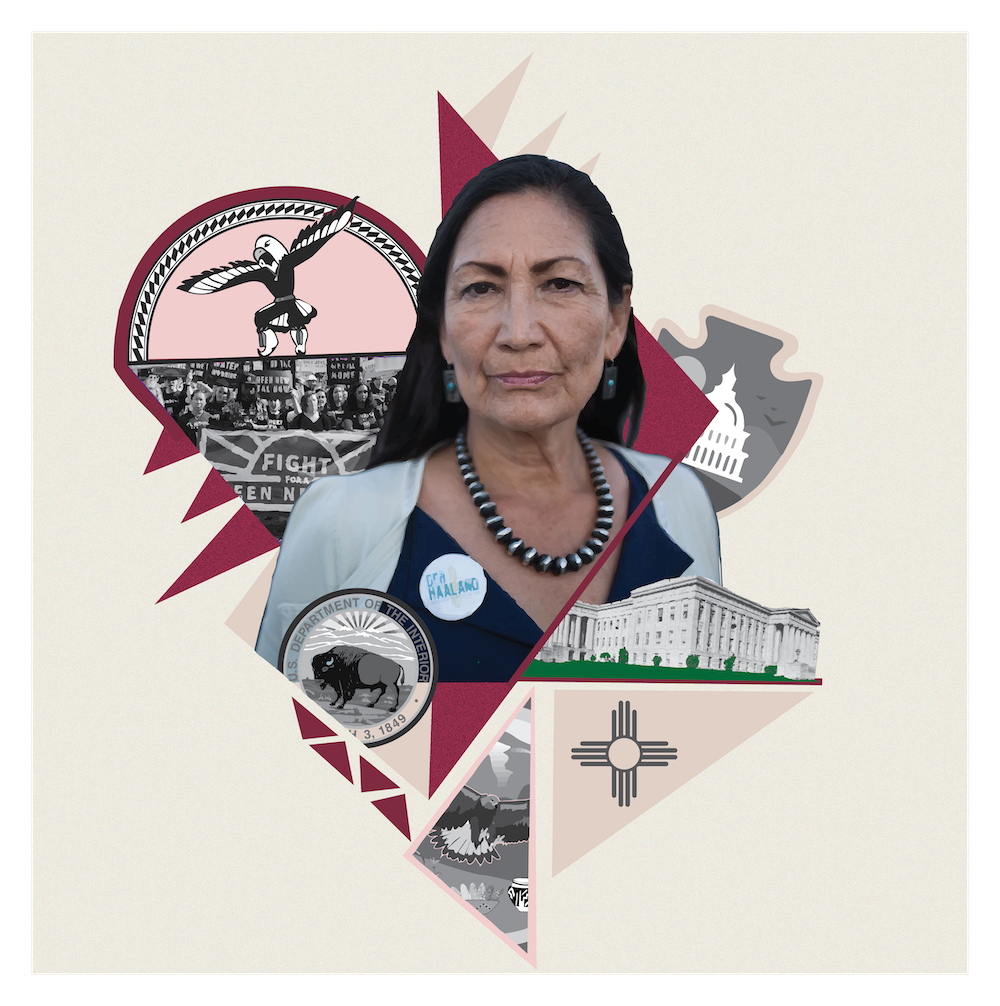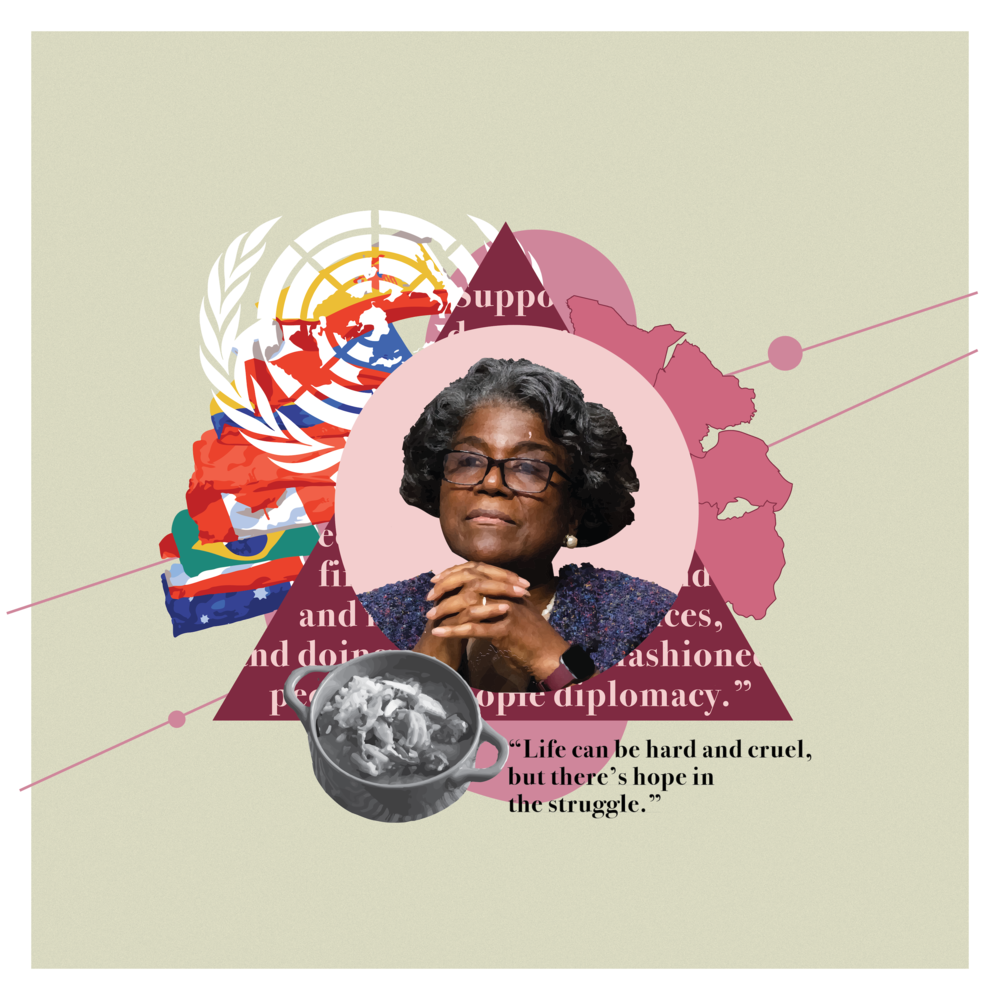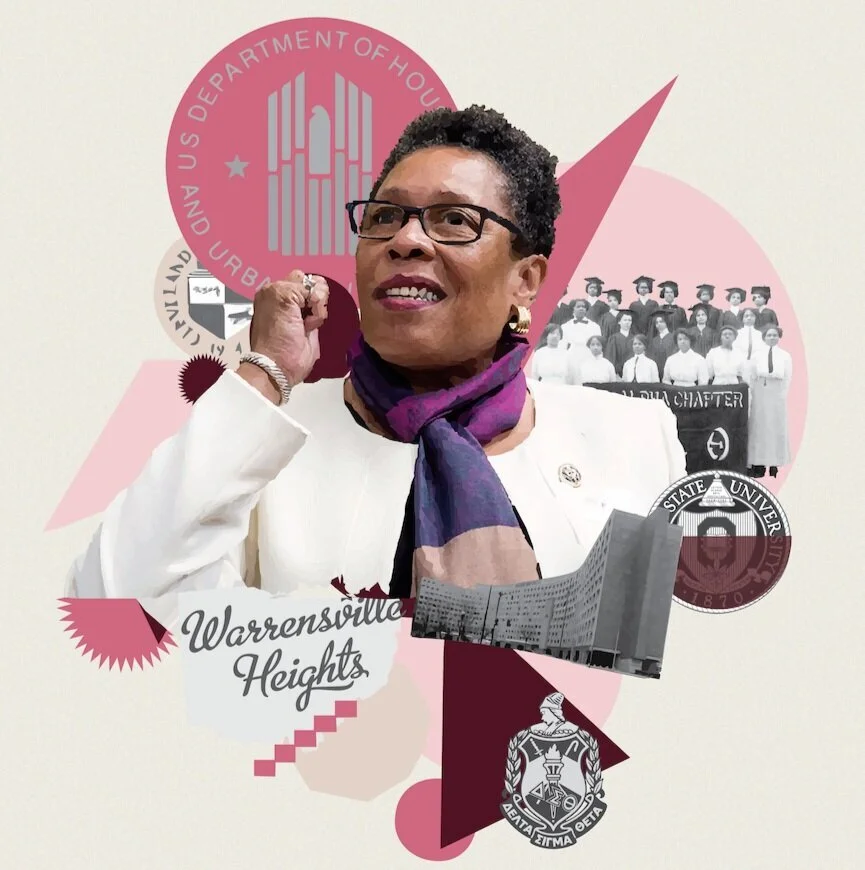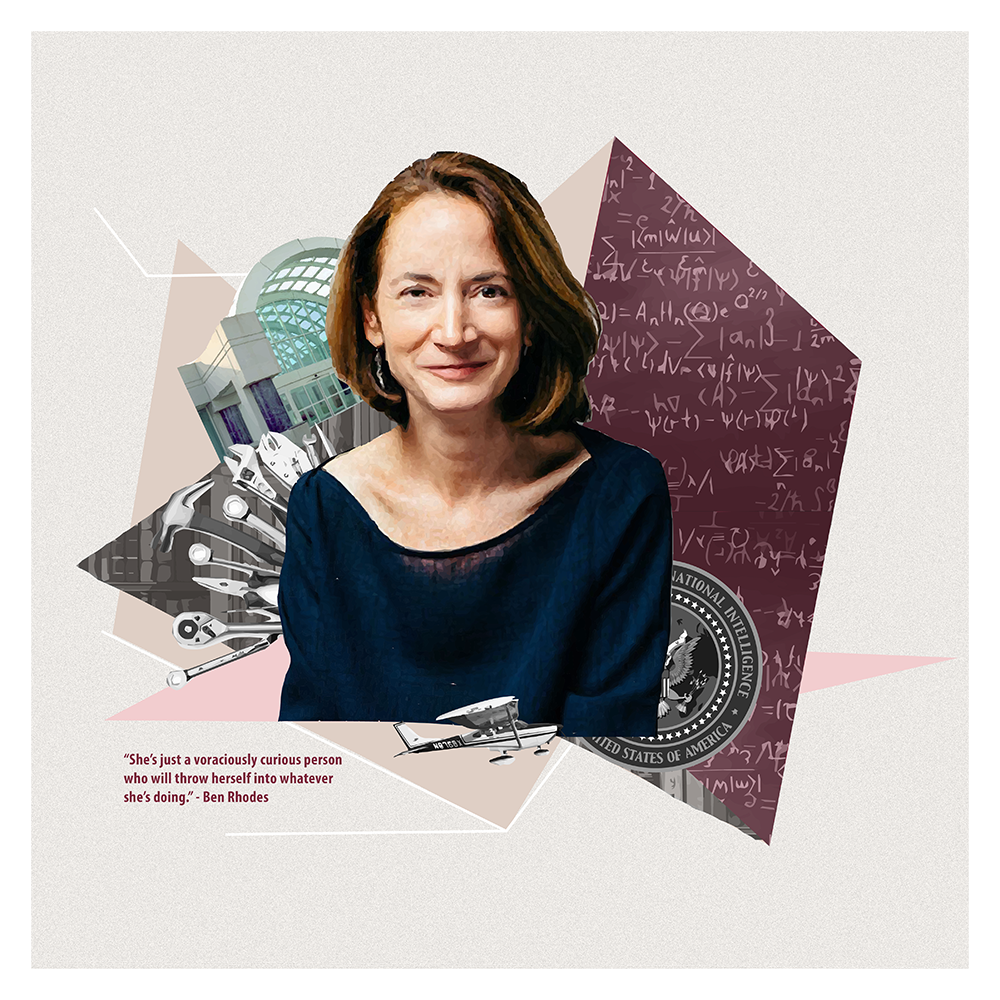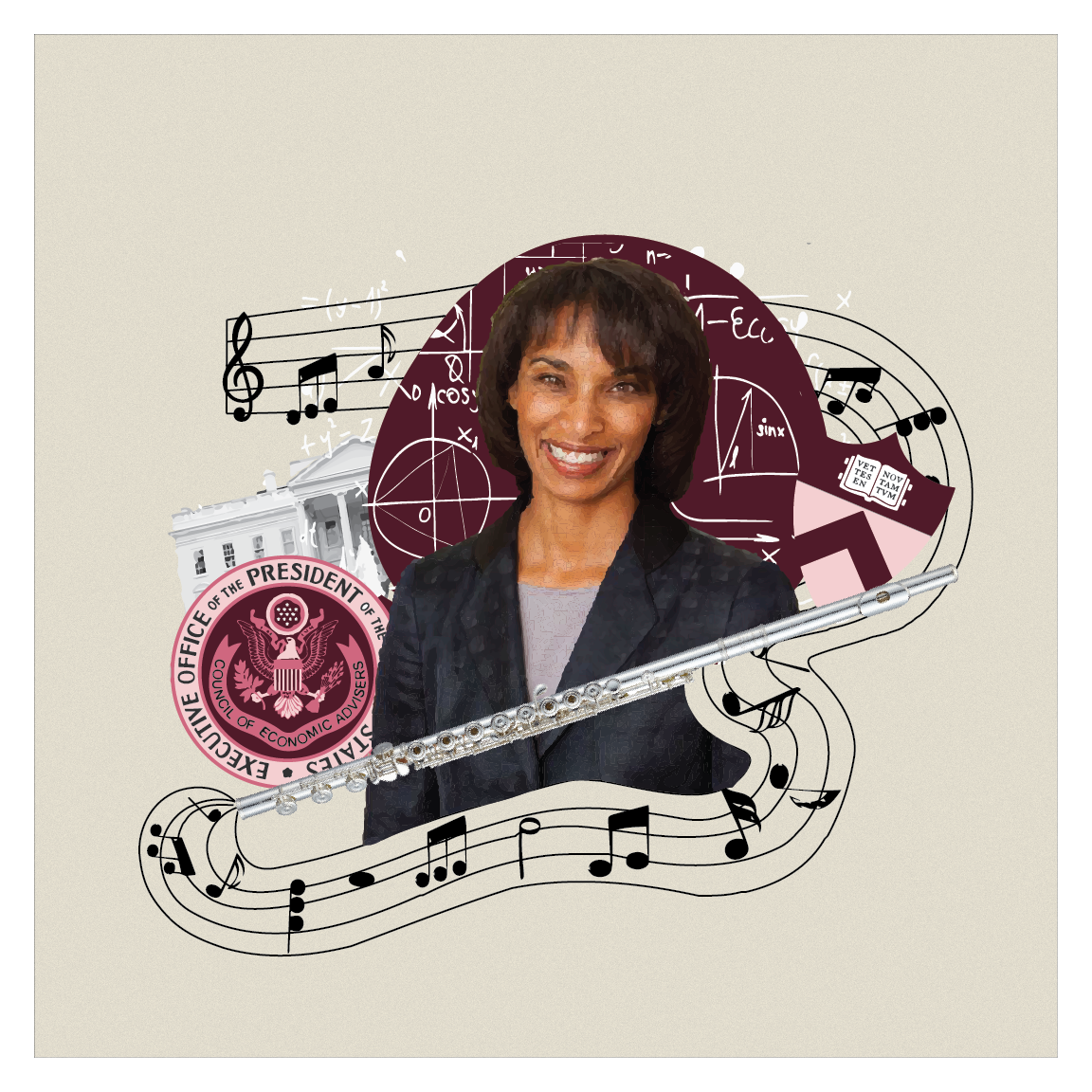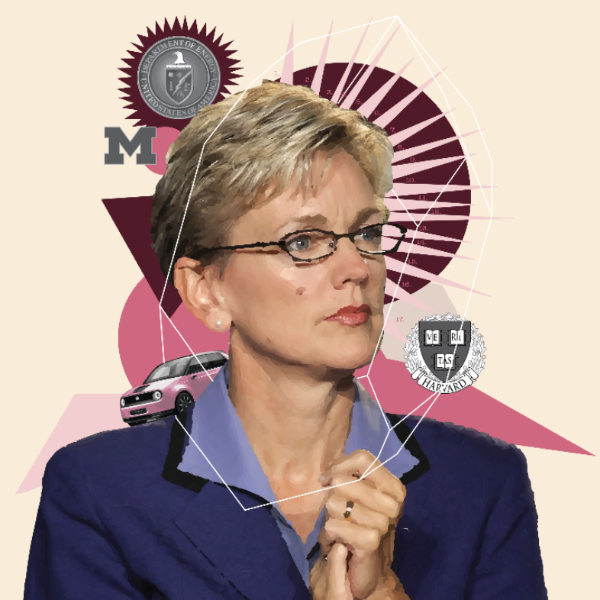Every Omega Institute Women & Power Conference has been a source of connection, creativity and courage for me. That was especially true this year, as it was the theme of the convening at the upstate NY campus this past weekend. And yes, we courageously (and carefully, with proof of vaccinations) connected in person for plenary sessions in a big tent that allowed for social distancing and being together with women from all over the country — and indeed, several countries, as we had high profile speakers from Ireland, Switzerland and Kenya. After all these months of zooming to stay connected, it felt so good to actually be together. Some of the speakers and presentations were virtual, of course, and we respectfully wore masks when inside. Even though it was difficult to restrain ourselves when greeting old friends for the first time in so long, we did, for the most part, forgo the sisterly hugs!
The extraordinary writer, thinker and cofounder of Omega Institute, Elizabeth Lesser, always lays the foundation for these forums with her highly anticipated opening remarks. This year she began by recalling the words of Gloria Steinem who, on that very same stage at an earlier Women & Power gathering, said that "hope is a form of planning."
Reflecting on that idea, Elizabeth reminded us that "we have the choice, every day — and these days, every minute — to meet our despair and our cynicism, with positive dreams and practical strategies."
“When I come from hope, I gain courage, I find allies, I tune out the naysayers, and I fix my eyes on my dreams, but also on the practical structures that will activate those dreams. I think of hope as the baby of those two forces — dreams and practicality. I have a name for that baby. I call her SMART HOPE. That’s the kind of grit and faith Gloria was talking about when she said, ‘Hope is a form of planning.’”
With so many lives lost in the pandemic and so much suffering from recent extreme weather events in every corner of the world, it is hard to sustain hope, but like Elizabeth and Gloria and the women leaders who know the power of being connected to each other, I have smart hope that we will, individually and collectively, create the vision of a better future and move forward toward it, together.
The inaugural Connected Women Leaders gathering at Bellagio in 2017.
Connected Women Leaders
Believing that connection is power and that coming together to share our stories, our experiences, and our ideas is a powerful resource for hope and for planning was the motivation for bringing together at Omega a small subset of the Connected Women Leaders. Ronda Carnegie, chief innovation officer of The Female Quotient, and I cofounded CWL in 2017, and along with Hafsat Abiola, president of Women in Africa Initiative, we lead this cohort curated across geographies, generations, expertise, and experience to convene forums on some of the world’s most urgent threats: climate justice, food security, global health, and economic inequities. Working together with a gender and racial lens, we endeavor to shape just, equitable and sustainable solutions.
We believe stories are our bridges and that connecting women to each other to share their insights creates a collective force for problem-solving and positive change. These incredible women are a great source of knowledge, ideas and inspiration for me and for each other.
The 'Mother' of All Issues: Climate Change
As former president of Ireland Mary Robinson, now chair of The Elders, said at our very first CWL gathering in 2017, among the many issues that we are dealing with globally the number one item on all of our agendas must be climate change.
During our time together this weekend, Mary warned that the 2020s is the "critical decade" for action on climate change. Just last week, a new report published by a range of UN agencies and their scientific partners finds that even with the pandemic pause that saw emissions dip last year, climate change and its effects are accelerating.
"We must reduce carbon emissions in the next nine years," Mary explained. "We must apply every means of pressure we can think of" on federal, state and local governments, and corporations to get them to take action against climate change. COP26 this November must mark that turning point.
Three things we can do to move forward and generate "smart hope" on climate change
Take action. Action engenders hope.
None of us are doing enough to meet this critical moment. Climate scientist Katharine Hayhoe has a new book out this month, "Saving Us." In an essay in TIME magazine last week, she wrote movingly about why we must act in order to feel hopeful.
Building on her incredible 2018 TEDWomen talk, Hayhoe reminds us that significant social progress throughout history happened "when ordinary people – people of no particular power, wealth, or fame – decided that the world could and should be different. ...[P]eople who had the courage of their convictions, who used their voices to advocate for the systemic societal changes needed. We are the the people who changed the world before: and we are the people who can change it again."
Watch Hayhoe's 2018 TEDWomen talk: "The most important thing you can do to fight climate change: Talk about it"
In TIME, she writes:
"What can you do? Anything. Recycle your yogurt cup after breakfast tomorrow. Cut your food waste. Try a new veggie recipe. Replace your light bulbs with LEDs. Go bigger: talk to your school or your place of work or worship about what you could do, together. Join an organization that shares your values and advocates for change. Attend the next climate march in your area, or even start a new one. Begin a petition in your community to require solar panels on municipal buildings. Call Congress and demand a clearer path to net-zero.
Don’t just do it: talk about what you’re doing, and why. We can’t change the world by ourselves. We have to do it together, and that requires us to connect. Talk about why climate change matters, in ways that affect you personally." Read more »
Remember, we are stronger together.
Connection is key to building smart hope.
For me, that means working collectively with women for change. It starts by talking to all my cohorts on a local, national and global level. Climate change is already happening and affecting all of us in specific ways that matter to each of us in our communities. In concert with mitigation, another CWL member this weekend talked about the power of local community action. Wanjira Mathai, board chair of the Wangari Mathai Foundation, urged us to advocate for adaptation, conservation, and solutions we can implement locally to respond to and prepare for climate impacts already taking place. "This is the era of losses and destruction, and we need to adapt for living in climate change," she said. Globally, we must act in solidarity with those who are experiencing some of the worst impacts, listen to their stories and perspectives, and amplify them when we can.
Leaders, it's time to be 10x bolder.
Halla Tómasdóttir is the CEO and chief change catalyst of The B Team, a global collective that is working to redefine the culture of accountability in business, particularly in regard to climate, diversity and governance. She is also one of the conveners of the Fearless Women network and a member of CWL. She's working on a new Leadership Playbook that The B Team plans to launch publicly later this month. Leaders at every level need to rethink the policies, practices and mindsets that have brought us to a world of broken trust, rapidly rising temperatures and increasing inequality. How will you choose to lead in this moment? (I will be sharing a post about bold leadership when the Playbook is released in a few weeks.)
One of Nelson Mandela's famous quotes that I heard repeated several times this weekend serves as inspiration for all of us in this critical moment:
"It always seems impossible until it's done."
So let's start doing. It takes courage to begin, but know that the actions you take in turn will inspire and spur others around you.
Smart hope is equal parts dreaming and doing. We are not the first people on this planet to be presented with seemingly intractable problems. As Elizabeth Lesser said from the Omega stage this weekend: "This is our time, our struggles. Our time to tend the planet, befriend the 'other,' and mend the fabric of our communities, our country, our world."
So let's get to work.
Onward!
- Pat
Upcoming Zoom Event
Register now to join us on Thursday, Sept. 23 at 10am ET as Wanjira Mathai and Pat Mitchell set the stage in a conversation about global women’s leadership for climate action. The theme is Building a Better World: Women and Climate Justice.


